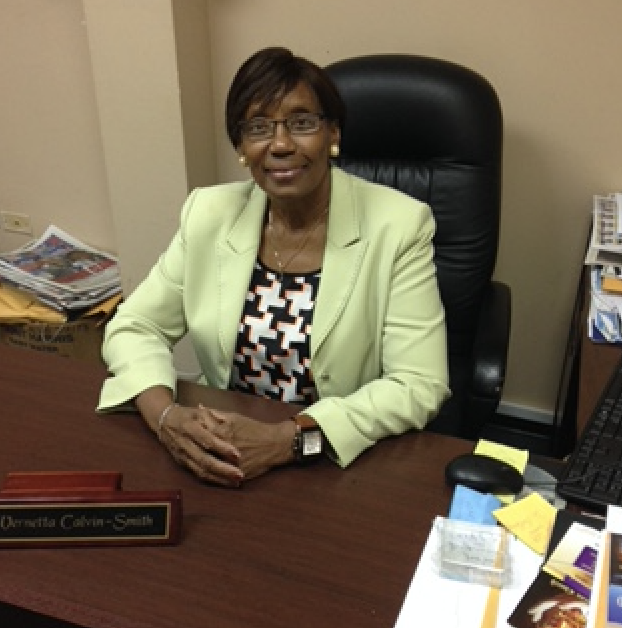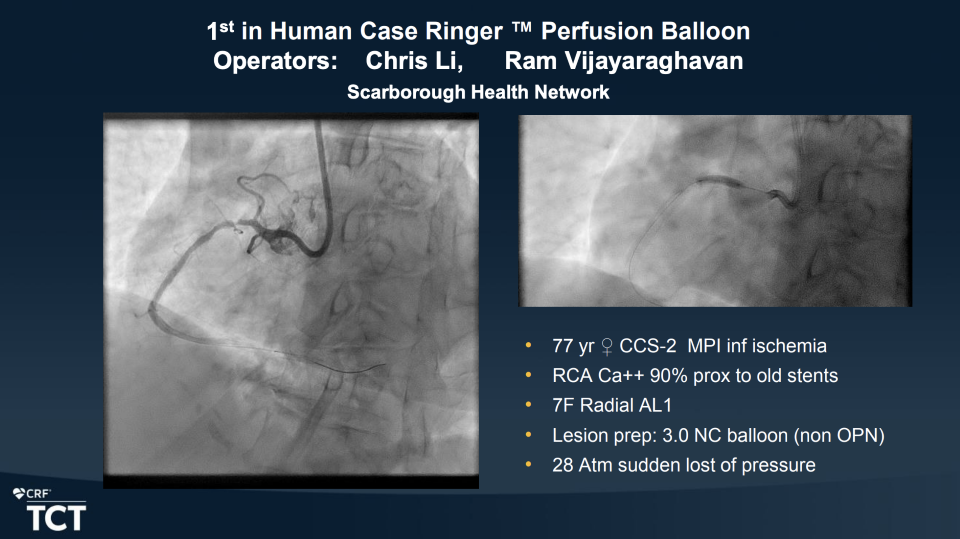 Patient Vernetta Calvin-Smith
Patient Vernetta Calvin-Smith
It’s late January, in the midst of a stressful global pandemic, but cardiac patient Vernetta Calvin-Smith is waking up renewed. Her family is in the next room, with the sounds of children at play, and a lively energy fills the air. Today, Vernetta has a lot to celebrate.
It’s been several months since the vibrant 77-year-old Oshawa resident walked out of Scarborough Health Network’s (SHN) regional cardiac centre at Centenary Hospital, after undergoing a life-saving, historical medical procedure: the first-ever, in-human use of a Ringer™ Perfusion Balloon Catheter.
Her journey to better heart health started while searching for help with breathing problems and chest pains; she had an undoubted self-awareness that something was critically wrong.
Vernetta was right. Ninety-five per cent of her right coronary artery was blocked and she needed medical care, right away. Little did she know, after being referred and sent to SHN, she would soon make medical history.
As home to the regional cardiac centre servicing Scarborough, Durham and other communities across the Central East region of Ontario, SHN offers closer-to-home specialized care from some of the country’s leading cardiac experts, including interventional cardiologists Drs. Christopher Li and Ram Vijayaraghavan.
They were each a part of the compassionate cardiac care team delivering exceptional, innovative, and life-saving care to Vernetta, whose artery was too blocked to implant a stent ” a tiny mesh tube that helps open up the artery ” simply because the mesh wire could not penetrate.
Vernetta was advised that due to her age, open heart surgery would not be advisable; instead she would undergo a procedure to help open her artery – making it possible to insert a stent.
When arriving for her procedure at one of SHN’s three catheterization labs, Vernetta said she was in a different headspace. Nervous, scared, but optimistic for the outcome.
Deciding to use the Ringer™ Perfusion Balloon Catheter
Catheterization procedures involve guiding a thin, flexible tube (catheter) through a blood vessel into the heart to diagnose and treat heart conditions, including clogged arteries. During her procedure, Vernetta had a calcified lesion with mild bleeding that had to be dealt with right away. This led Dr. Li’s quick-thinking team to insert a Ringer ™ Perfusion Balloon Catheter to manage any hemorrhaging.

“The Ringer™ Perfusion Balloon Catheter is like 10 to 15 doughnuts stacked together, so there’s a hole in the middle. When you inflate the balloon, it seals off the side wall to stop the bleeding and you still have the hole in the middle to allow blood to flow to the heart. The patient won’t have any chest pains, heart attack or other complications,” explained Dr. Li.
SHN is one of three hospitals that is part of the University of Toronto’s Chronic Total Occlusion (CTO) research group, which stocks the Ringer ™ Perfusion Balloon Catheter under the Special Access Program (SAP) of Health Canada. Previously bench tested in a lab, the Ringer™ Perfusion Balloon has not yet been authorized for sale in Canada, but through SAP, health care professionals may access these medical devices.
“This collaborative group works with complex and high-risk cases. So, to have access to this device, and its positive outcome, is a fairly big deal,” said Dr. Li. “Since we presented our findings in November at the Transcatheter Cardiovascular Therapeutics (TCT) conference – the biggest of its kind each year – more Canadian hospitals are asking for this device.”
Dr. Li added this type of technology is great news for Canada, but there is still work and research that needs to be done.
“We only have limited experience,” he explained. “There’s an ongoing study about it in the United States, but I predict, it will be used more and more in the future. SHN is at the forefront of testing, and reporting our data to the rest of our colleagues around the world.”
Positive Patient Outcome
As for Vernetta, she was discharged the next day.
“I thank God that this ringer perfusion balloon fixed the problem. I was the first person in the world to receive this particular treatment, and it worked,” she said. “SHN’s cardiologists have the knowledge and experience that makes the difference, and now I feel significantly better.”
Vernetta said she feels very special and has a deeper perspective and appreciation for life.
“I feel blessed. So many people tell you that you’re going in for something routine, so you shouldn’t worry. But you can never be sure anything is ever routine,” she said. “I don’t just take anything for granted. I am thankful to God who placed me in the gifted and experienced hands of the brilliant cardiologists working at Scarborough Health Network. Life is wonderful.”

